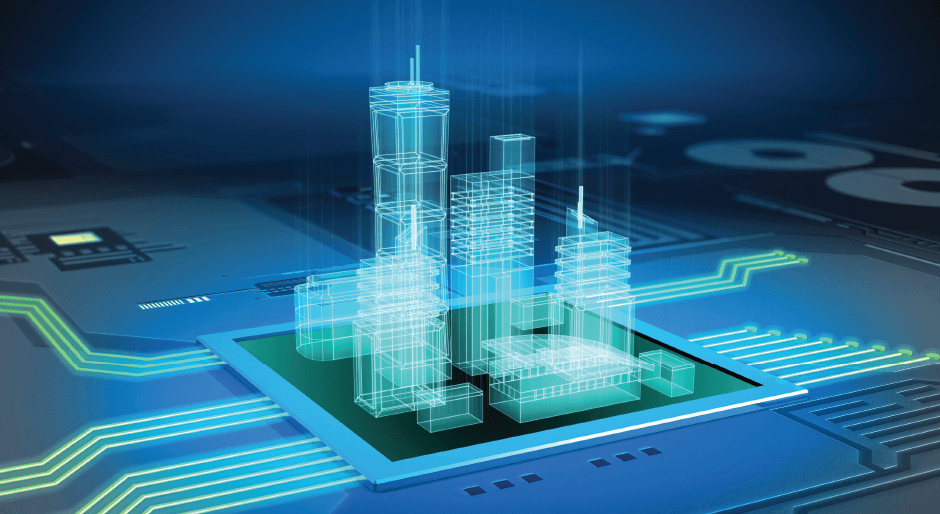Intelligent Buildings | The Future of Engineered Buildings
Intelligent Buildings, or “smart” buildings, have become increasingly popular in modern engineering projects. By utilizing cutting-edge technologies such as the Internet of Things and artificial intelligence (AI), these structures are proving to be both efficient and cost-effective solutions, with a multitude of benefits for engineers to consider. In this article, we explore the advantages of smart buildings and discuss why engineers should be turning to this technology for their projects.
United Technology Building Systems Corporation coined the phrase “intelligent building” for the first time in the US in 1981. Their efforts paid off around two years later, and the City Place Structure in Hartford, Connecticut (USA), was dubbed the first intelligent building in the world. The original definitions did not take into account the needs of the user, focusing primarily on the technological features. However, more modern definitions also take into account how people interact with one another and with their surroundings.
Installing and utilizing cutting-edge, integrated building technology systems constitutes a smart building. These systems include facility management, telecommunications, user systems, and building automation. Building system convergence and technical improvements, as well as system similarities and the added functionality that integrated systems offer, are all recognized and reflected in smart buildings. To help the building owner or occupant manage the building or space, smart buildings offer actionable information about the building or space within the building.
Intelligent buildings can “learn” the normal patterns of their occupants and can alert security if it detects something different than what is expected. It is required to assess the different security threats that need to be considered while designing an intelligent building and how these buildings can protect occupants and assets. In addition to providing improved security, intelligent buildings can reduce costs for building owners by monitoring and recording energy usage.
A smart building is a particular kind of structure with affordable construction costs, effective energy management, and a comfortable and convenient atmosphere. Its design takes into account the ideal interaction between the structure, system, service, and management. The phrase “smart” building refers to a structure that goes beyond the typical building structure and function by having intelligent control systems and smart, networked gadgets. The modernized sensor-embedded home with a variety of integrated systems was first considered to be the foundation of smart buildings. The system’s internal and external communications were effectively and remotely managed.
One of the main benefits of intelligent buildings is their ability to save energy. By automatically adjusting lighting and temperature based on occupancy and weather conditions, these buildings can reduce their energy consumption by up to 30% compared to traditional buildings. In addition, they often make use of renewable energy sources such as solar and wind power, further decreasing their carbon footprint.
Another advantage of intelligent buildings is their improved security. By integrating security systems with building management systems, these buildings can monitor for potential threats and take corrective action accordingly. This increased security can not only protect occupants and assets but also help to reduce insurance costs.
The biggest challenge facing intelligent building projects is getting the entire team on board the concept. The project may be clear to the building owner but convincing all parties of its value can become difficult.
Intelligent buildings can provide a better overall experience for occupants. By utilizing features such as wayfinding and indoor mapping, they can help people navigate the building easily and find the amenities and services they need. In addition, these buildings often have better air quality and acoustics, making them more comfortable and pleasant places to work in.
Overall, intelligent buildings offer a multitude of benefits that make them a compelling option for modern engineering projects. With their ability to save energy, improve security, and provide a better experience for occupants, these buildings are sure to play a big role in the future of the built environment.
While the primary focus of intelligent buildings is on efficiency and cost-effectiveness, their impact extends beyond simply saving money. These buildings have the potential to radically transform the built environment, making them more sustainable, secure, and enjoyable for all who live and work in them.
In a future low-carbon economy, where information technology and smart building applications will completely blend and merge, smart buildings are a vital contribution. More and more academics concur that hardware system awareness is necessary for smart building applications. Long-term energy and cost reduction goals for smart building applications will necessitate multi-layer software and hardware adaptability. A significant improvement necessitates the use of new hardware, comprehension of the systemic issue, and collaborative thought.





